‘From Farm to Fork’
From the farm through to our forks, the agri-food sector has a gross value added (GVA) to the UK economy of £103bn. Food and drink manufacturing, retailing, and wholesaling contribute £66.3bn to this GVA. The journey that our food takes from the farm to the fork is important for our lifestyles and future food security in Britain. Collaboration between food manufacturers, researchers, and producers is important for securing the UK agri-food chain, and achieving the 60% increase in global agricultural production needed by 2050. Researchers in Britain will lead the revolution in technology that will tackle the global food security challenge:- what Silicon Valley is calling food 2.0.
The Agri-Tech Catalyst, a major part of the Agri-Tech Strategy, has already funded a number of projects with the food manufacturers or distributors shown in the ‘From farm to Fork’ video. These projects aim to solve issues that food processors, manufacturers and distributors are facing where the solution lies in primary production. A few of these projects are highlighted below:
- J Sainsbury’s has collaborated with the University of Manchester to reduce the cost and carbon footprint of milling wheat production. The project will aim to develop a scanning unit for the precision application of nitrogen to ensure the all the crop attains the necessary protein content for milling wheat - enabling food manufacturers to more sustainably produce the wheat. Find out more about the project here.
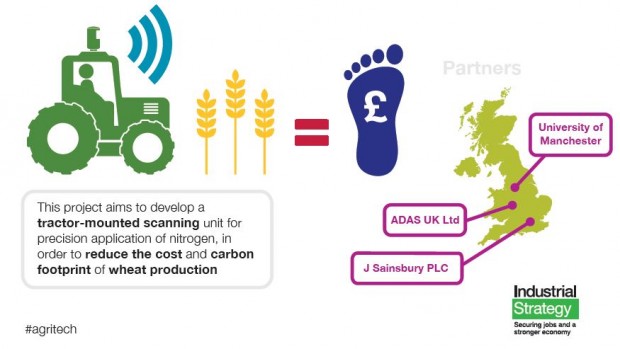
- Seaweed for human consumption is the largest aquaculture industry in the world. Mara seaweed (Celtic Sea Spice Company Ltd) is involved in a project with the Scottish Association for Marine Science to develop the technology to grow two species of seaweed in the UK and satisfy increasing consumer demand.
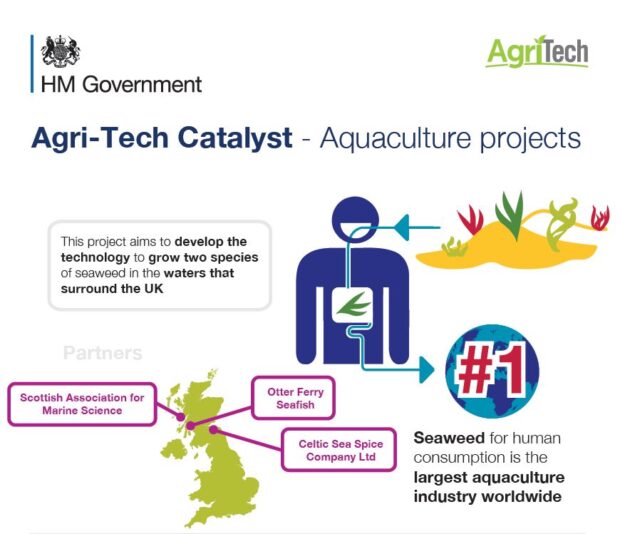
- Lucozade Ribena is addressing the effects of the trend towards warmer winters which adversely affects blackcurrant production (yield and quality). Existing dormancy-breaking treatments will be assessed for use on blackcurrants. By optimising these treatments for blackcurrants, the aim of the project is to improve yield and quality in the future.
- McCain Food (GB) Limited is working with a number of partners to reduce potato losses caused by bacterial pathogens. This project will test and develop antimicrobial technology with an aim to reduce the substantial losses from disease, damage, and failure to meet market specifications.
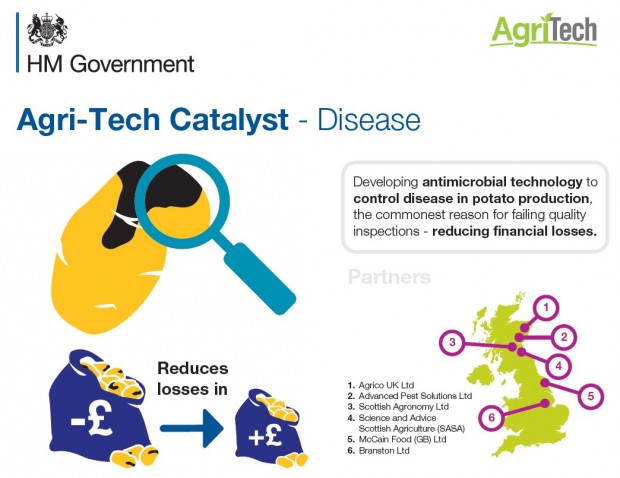
- Wright Salads Group Ltd are working with other industrial partners to extend the shelf life of fresh produce and reduce waste. This project aims to develop an innovative approach to eradicate grey mould both in the pre- and post-harvest environments for tomato and cut flower crops; this involves the use of ultra violet light to induce natural plant resistance mechanisms and the removal of the gaseous plant hormone ethylene to prevent grey mould infection.
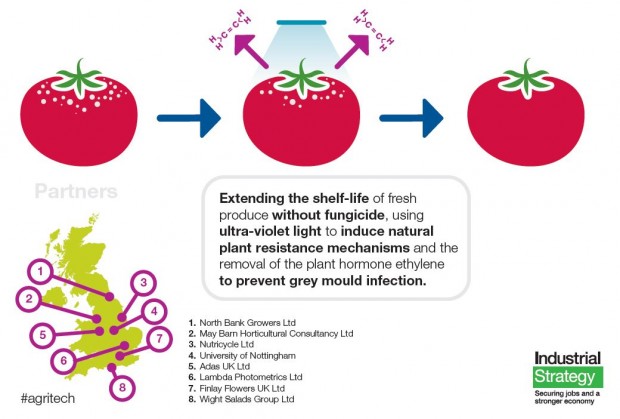
- 'British lion' eggs are part of the diet of many people in the UK. With vitamin D defiency a common health problem in the UK, Noble foods are testing ways of modifying hen diets to produce 'sunshine' eggs enriched with vitamin D.
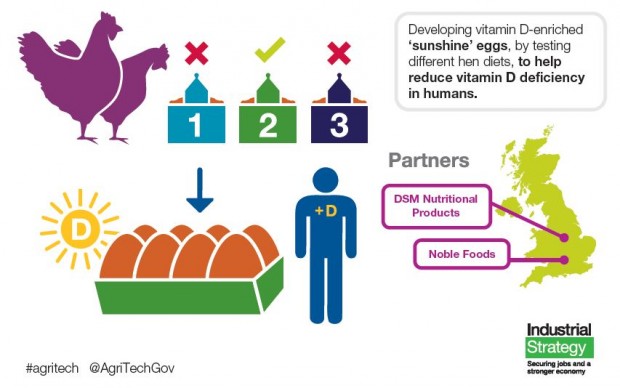
More information on the Agri-Tech Strategy can be found here. The Agri-Tech Catalyst round 4 is still open and you can apply here.

Recent Comments